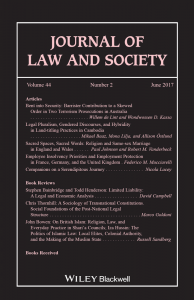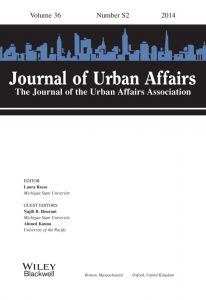The Uneven Adjustment to Homeworking Among UK Sex Workers
by Laura Jarvis-King, University of Leeds · Published · Updated
 The shift to homeworking under lockdown raises important concerns for those whose work involves physical and emotional connection, not least forms of work which have been undertaken in a shroud of secrecy. Here, I highlight the work of sex workers, in particular, who negotiate a sexual and emotional experience with clients through physical touch and emotional conversation. Of course, while some aspects of the experience can be – and are – undertaken remotely through online technologies in a burgeoning online sex market, up until now there has also been continued demand for physical and synchronous contact. These sex industry markets that rely on physical contact will have uneven success in shifting to work online.
The shift to homeworking under lockdown raises important concerns for those whose work involves physical and emotional connection, not least forms of work which have been undertaken in a shroud of secrecy. Here, I highlight the work of sex workers, in particular, who negotiate a sexual and emotional experience with clients through physical touch and emotional conversation. Of course, while some aspects of the experience can be – and are – undertaken remotely through online technologies in a burgeoning online sex market, up until now there has also been continued demand for physical and synchronous contact. These sex industry markets that rely on physical contact will have uneven success in shifting to work online.
Some sex workers will be able and willing to move to online working, as the infrastructure for doing so exists through a range of online sex websites. Further, many sex workers will already engage in forms of online work alongside their existing direct sex work. However, an influx of new online workers has the potential to saturate the market and threaten the income of existing online workers, as has been seen in other markets where supply is encouraged to outweigh demand.
In terms of demand, job confidence is at an all-time low with many staff having been furloughed or laid off, which impacts the extent to which clients are willing or able to part with disposable income in a leisure industry, particularly where they may not be receiving their preferred service. Of course, clients are also readjusting to life at home, and while for some this may offer additional free time to engage in the sex industry, others are potentially now at home with their families, which will likely reduce their ability to access sex services online. Increased competition and a reduction of demand potentially acts to drive down prices and reduce incomes of all sex workers and for this reason an adjustment to online – and home – working will be unevenly successful among sex workers.
Many sex workers; particularly migrant and poorer sex workers, however, lack the required technology to offer online services and have no viable alternative forms of working. These groups already experienced greater levels of economic uncertainty under policy conditions which conflate migrancy with trafficking and offer insufficient welfare. Indeed, the shortfalls of universal credit have already encouraged an influx of women to the sex industry, revealing the paradoxical nature of economic uncertainty and sex work. Sex workers who are entitled to it will increasingly be turning to universal credit in lieu of other support, but this will leave them significantly worse-off; not to mention the migrant workers and others who are not entitled to claim. In response, the English Collective of Prostitutes has called for an urgent recognition of sex work as work in order for sex workers to claim for loss of earnings. The Sex Worker Advocacy and Resistance Movement (SWARM) are also asking for donations towards a hardship fund for sex workers.
Others may be unwilling to work from home through online technologies because this threatens the separation sex workers maintain between their working and home lives. Sex workers often work in secrecy, even among those they live with, in order to avoid the stigma associated with the work. The effects of such stigma are considered too great and many will be unwilling to threaten the secrecy of their work by working among household members. I expect this will be particularly felt by those with children at home, especially considering they may be occupied by home-schooling efforts. The necessity of avoiding stigma is not confined to parents by any means, though, and will contribute to all sex workers’ decisions surrounding homeworking.
Sex workers often choose to work away from their homes to create boundaries around the emotionally demanding aspects of sex work. There are also safety concerns surrounding privacy and anonymity at home. Many sex workers I have spoken to while undertaking research in the industry dislike offering online services because they feel unable to screen clients to the same extent and they feel exposed in a market which encourages images of their face to be posted online. Working from home reveals additional identifiers which must be managed for the sex workers’ safety.
Working from home is unevenly experienced and practiced, therefore, and is not an easy or possible shift for many sex workers. This new landscape has significant implications for the safety and economic security of those who work in the sex industry and more support is needed. These issues underline the continued need for the recognition of sex work as work to combat stigma and to legitimise sex workers’ income in order for them to claim support. More generally, there is also a need for nuanced analysis on the uneven experiences of work under lockdown.
Laura Jarvis-King is a PhD researcher in the School of Sociology and Social Policy at the University of Leeds.





